Body art transcends mere aesthetics; it has long served as a powerful medium for storytelling, cultural identity, and community belonging across diverse societies. For Emmanuel Uchenna Item, a 30-year-old tattoo-inspiration-tiwa-savage/” title=”How He…break Fueled Tiwa Savage's Powerful … Expression”>tattoo artist of Austrian-Nigerian descent, tattoos represent a unique bridge connecting different worlds. His creations are deeply influenced by West African traditions, especially the ancient scripts of Nsibidi and Uli, alongside other indigenous symbols, which he skillfully reinterprets through a modern artistic lens.
Emmanuel was born in Vienna to an Austrian mother and a Nigerian father from Afikpo, Ebonyi State. After spending nearly a decade in Berlin honing his craft, he returned to his ancestral roots in 2024. Through his tattoo artistry, he not only reclaims his Igbo heritage but also empowers Africans and the diaspora to wear their cultural pride permanently and visibly.
In this exclusive conversation, Emmanuel shares insights about his background, the progression of his art, and the enduring impact he aspires to create.
Emmanuel Uchenna Item
Emmanuel, how are you doing today?
I’m doing great, thank you for inviting me.
To start, could you tell us more about who Emmanuel Uchenna Item is beyond the tattoo needle?
I’m a 30-year-old artist born and raised in Vienna. My mother is Austrian, and my father hails from Afikpo in Ebonyi State, Nigeria. I spent close to eight years living in Berlin before moving back to Vienna in August 2024. Traveling frequently fuels my creativity as I immerse myself in various cultures.
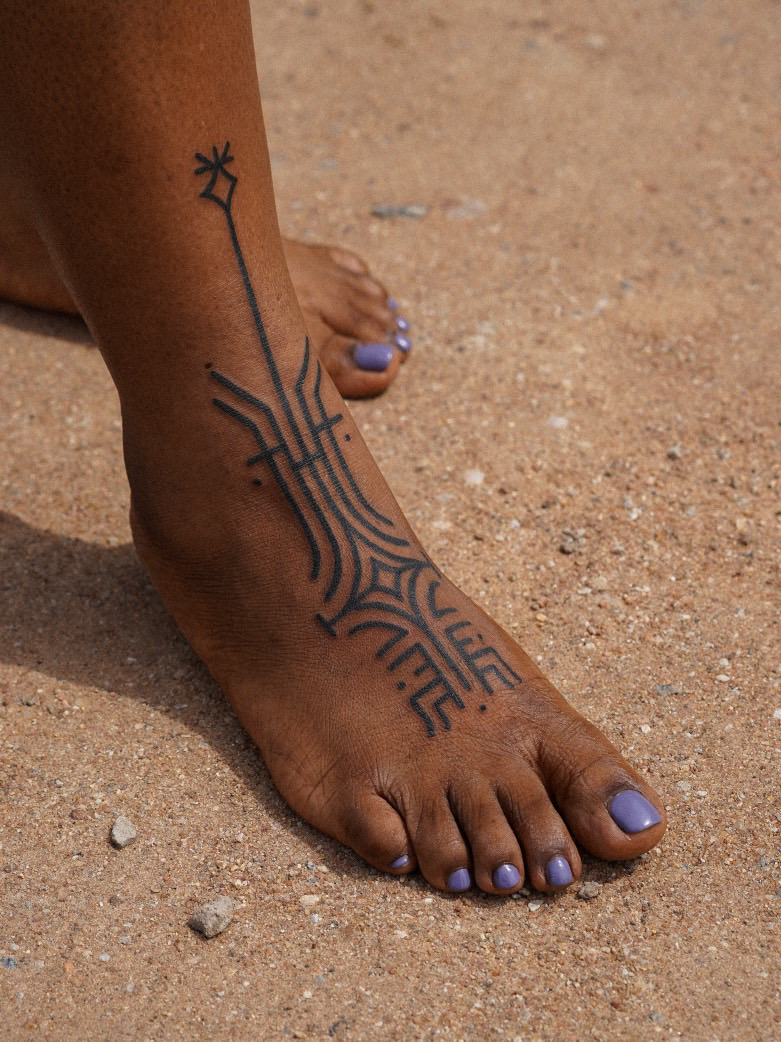
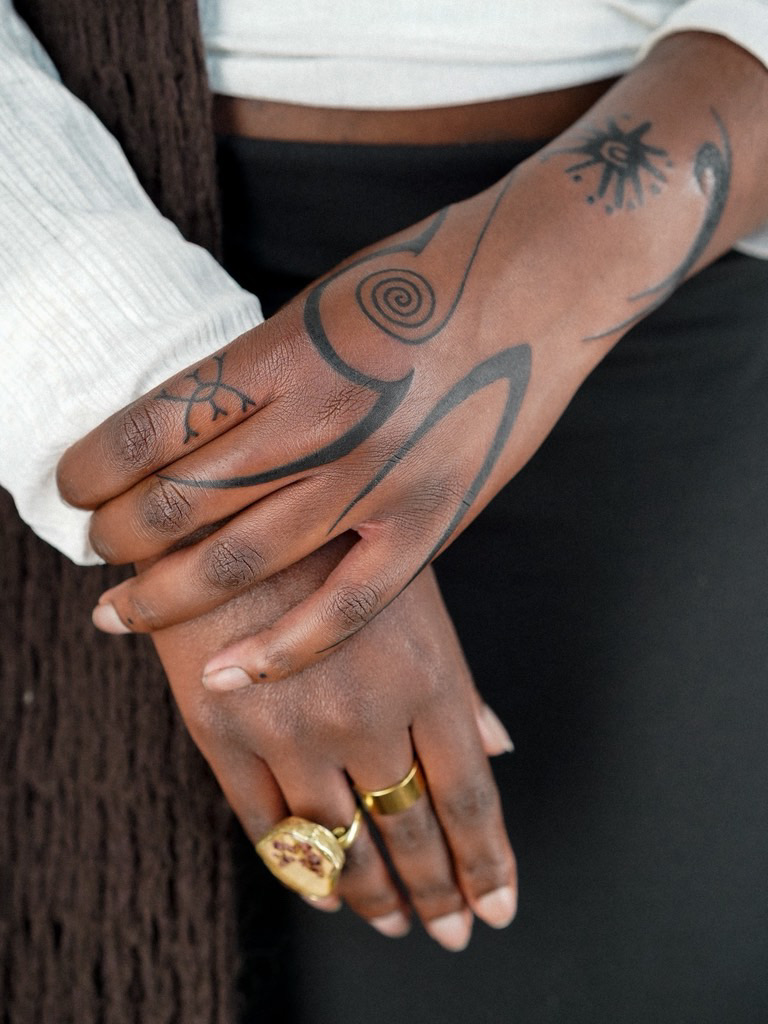
Your tattoos are deeply rooted in African heritage. How did you come to embrace this artistic direction?
My journey began as a personal quest to reconnect with my Igbo roots. I hadn’t visited Nigeria for many years until my father remarried in his village. Since then, I’ve made it a point to spend several months each year there. Around that time, I was already tattooing, so I sought out traditional visuals and motifs that could inspire my designs.
Another pivotal influence was my mentor, Roberto (@pantarei), who introduced me to the intricacies of tribal tattooing. His guidance encouraged me to delve into West African tattoo traditions and reinterpret them through my own creative perspective.
Nsibidi, Uli, and other indigenous symbols carry profound cultural significance. How do you integrate these sacred elements into contemporary tattoo art and fashion?
Respect is at the core of my approach. Honoring the legacy of our ancestors is essential, so I ensure that every design is created with thoughtful intention. Rather than duplicating traditional patterns exactly, I draw inspiration from them to craft fresh, innovative pieces that resonate within today’s tattoo culture.
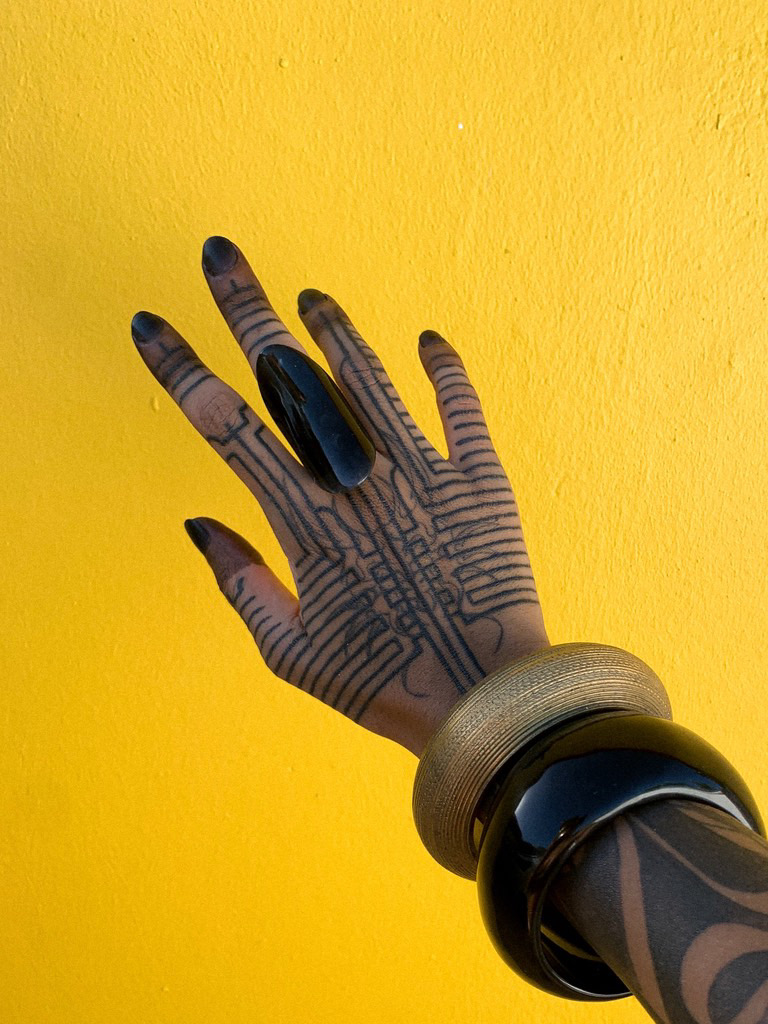
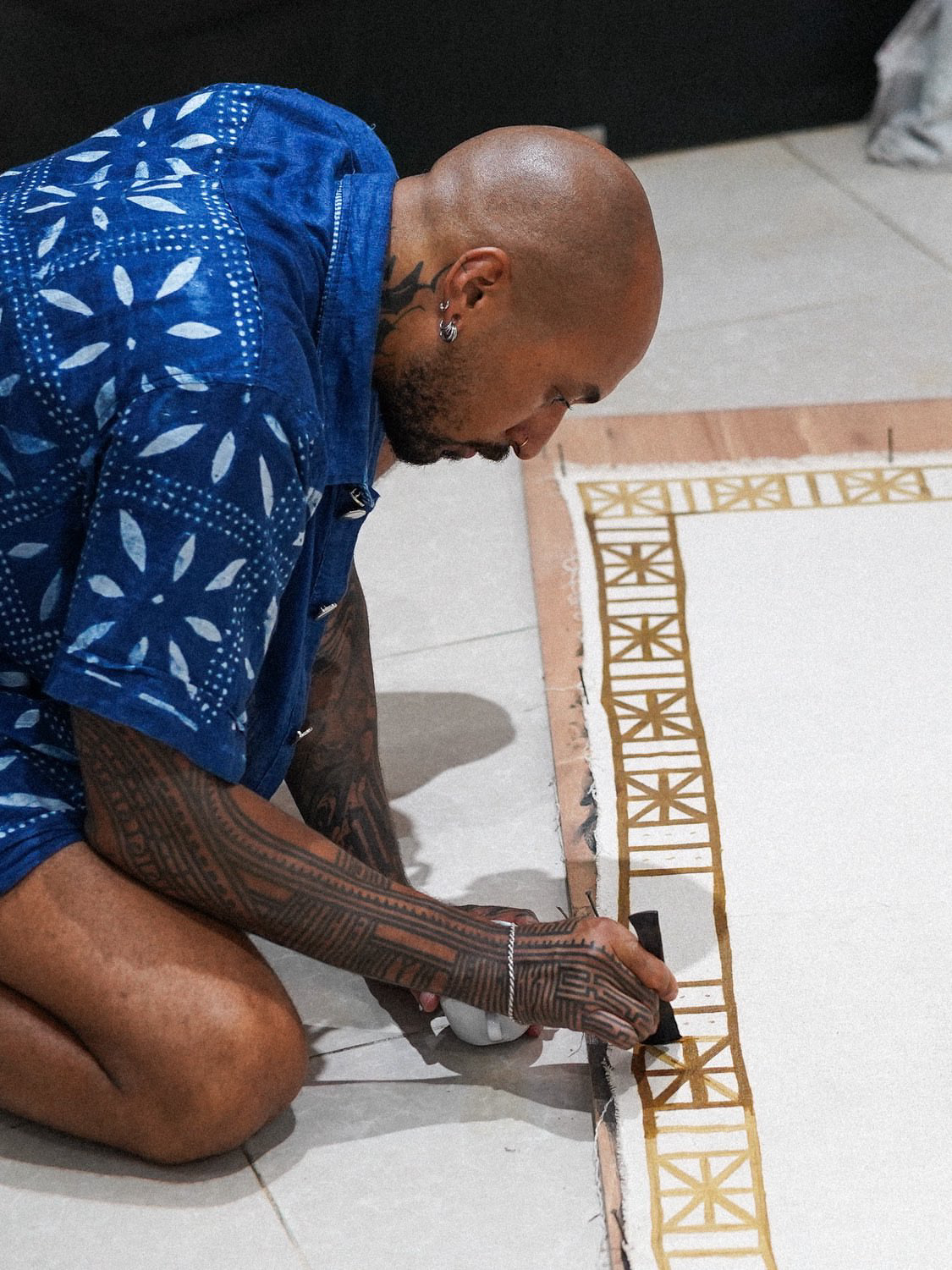
Having lived between Vienna and Berlin, how has this multicultural experience influenced your identity and artistic expression?
Leaving Berlin last summer marked a new chapter for me. Austria and Germany share many cultural similarities, but Berlin provided a vibrant environment that nurtured my growth as an artist. Being away from Vienna and traveling globally has deepened my appreciation for my hometown. It feels like I ventured out to gather knowledge and now I’m back to apply and share what I’ve learned.
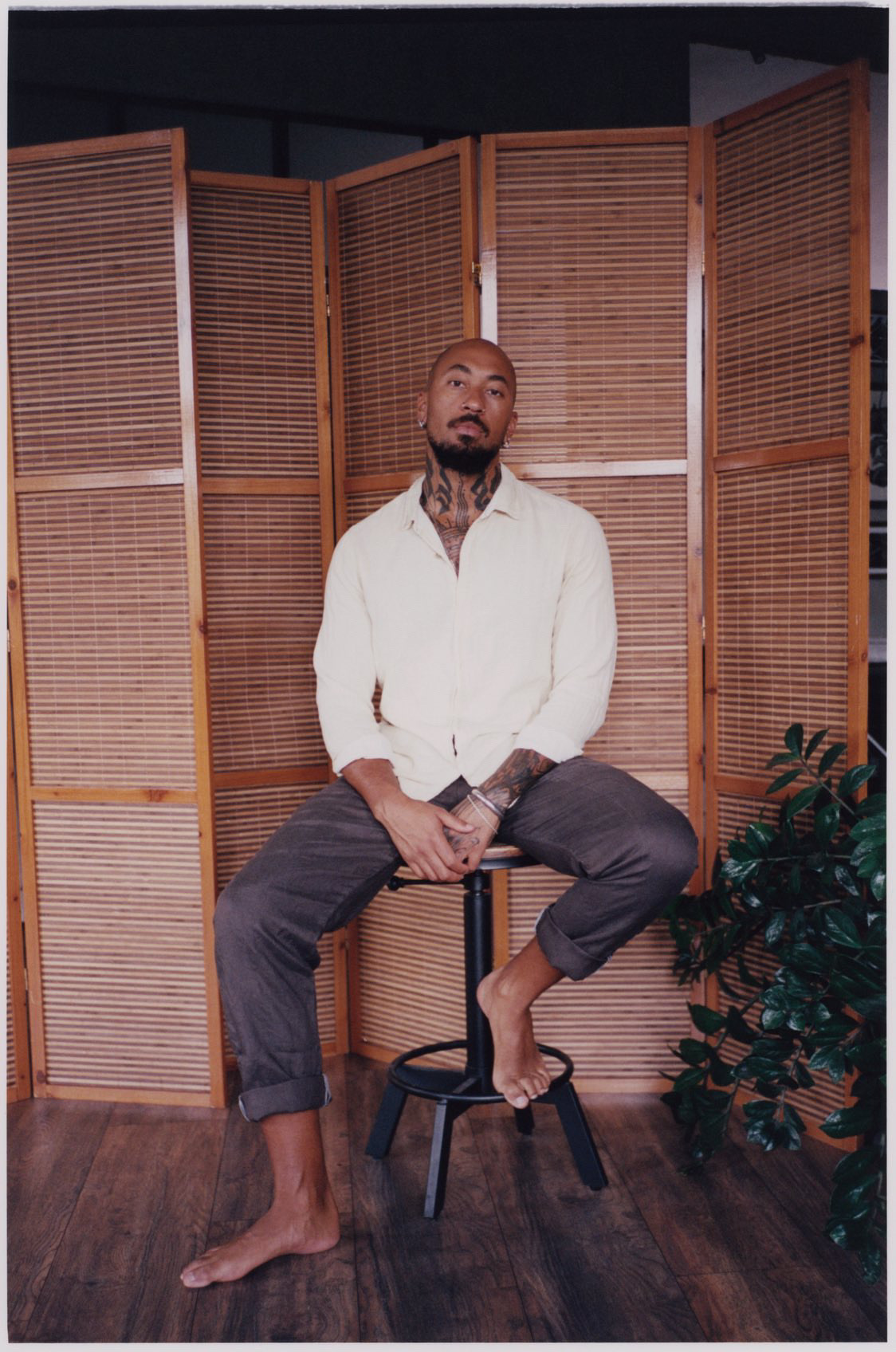
Emmanuel Uchenna Item
Tattooing often carries deep emotional weight. Can you share a story where your art profoundly impacted a client?
Recently, I tattooed a man from Abuja who survived a violent attack when robbers tried to harm his daughter. He was stabbed multiple times in his back and abdomen but lived with the scars for years. He approached me to transform those marks into a meaningful piece.
We designed a tattoo that camouflaged his scars with patterns resembling traditional scarification, incorporating Nsibidi symbols to add layers of cultural significance. It was a powerful way to reclaim his story and turn pain into art.
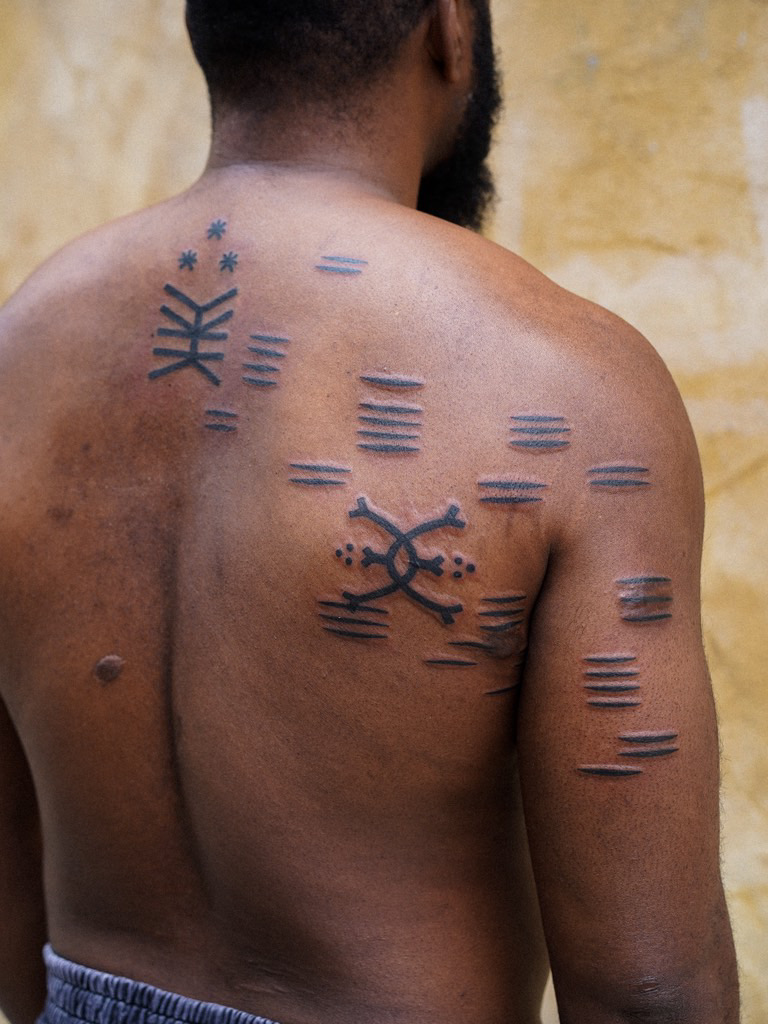
That’s a truly moving testament to the power of tattooing.
Absolutely.
Looking forward, what influence do you hope your African-inspired tattoo art will have on both the diaspora and global perceptions of culture, beauty, and self-expression?
My vision is for Africa to be recognized as a vital force in the contemporary tattoo scene. Like many creative fields, tattooing has historically underrepresented dark-skinned artists and clients without justification.
I want to see more artists, regardless of their background, embracing black skin as a canvas, encouraging black clients to feel confident and welcomed in tattoo studios. Additionally, I hope African tattoo culture gains respect and appreciation, shedding any negative stigma around body adornment.
Greater collaboration and exchange between Africa and other continents are essential to elevate standards, share expertise, and celebrate this art form. Ultimately, I aspire to leave a legacy where African tribal tattoos are globally acknowledged as a distinct and respected style within the tattoo community.
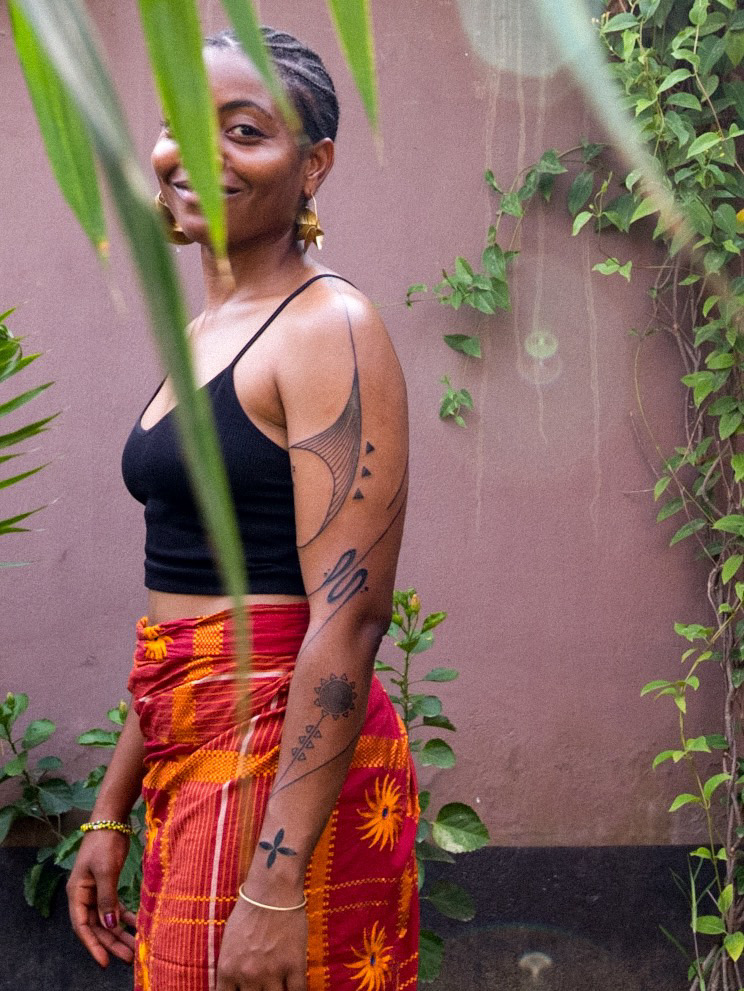
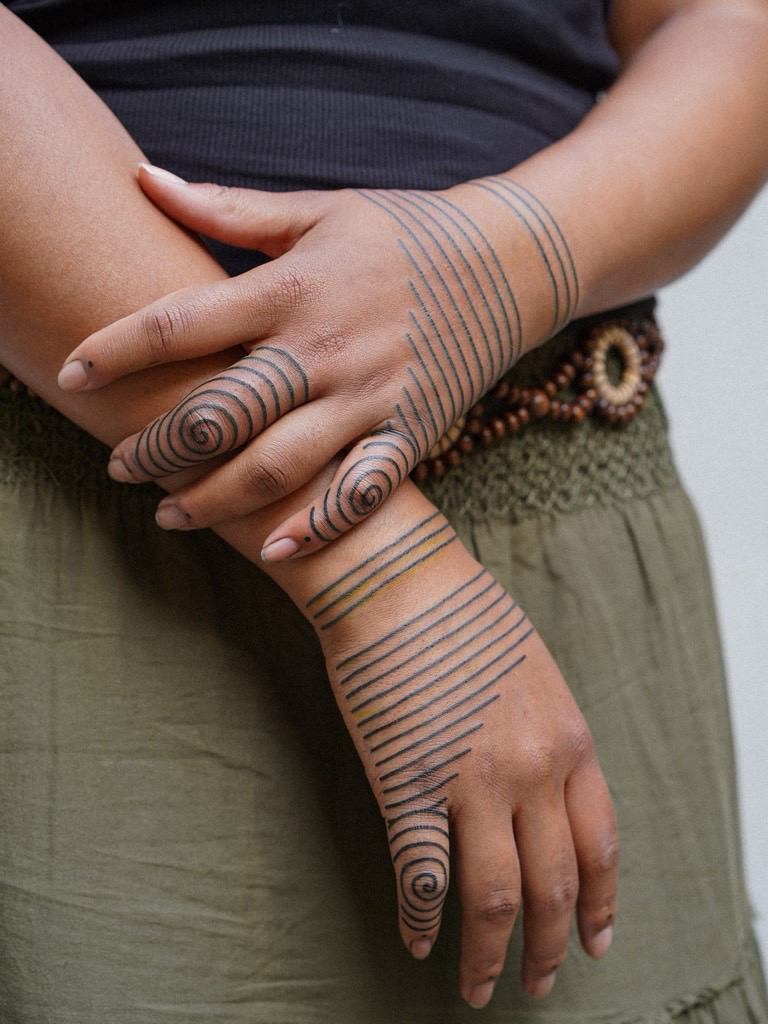
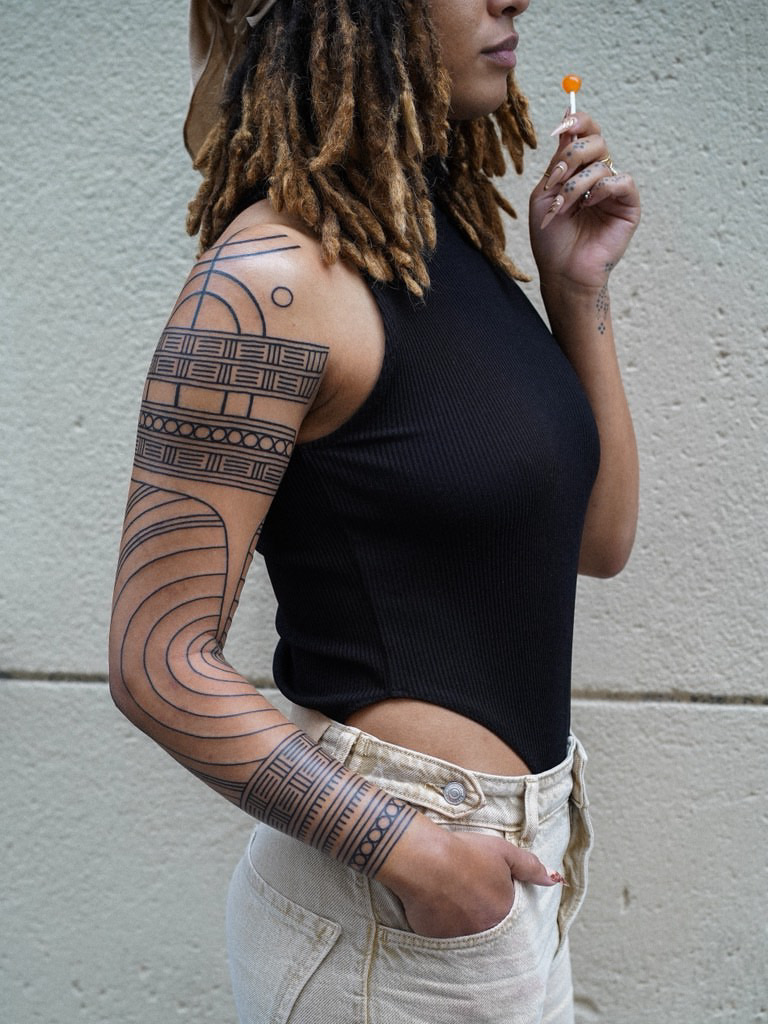
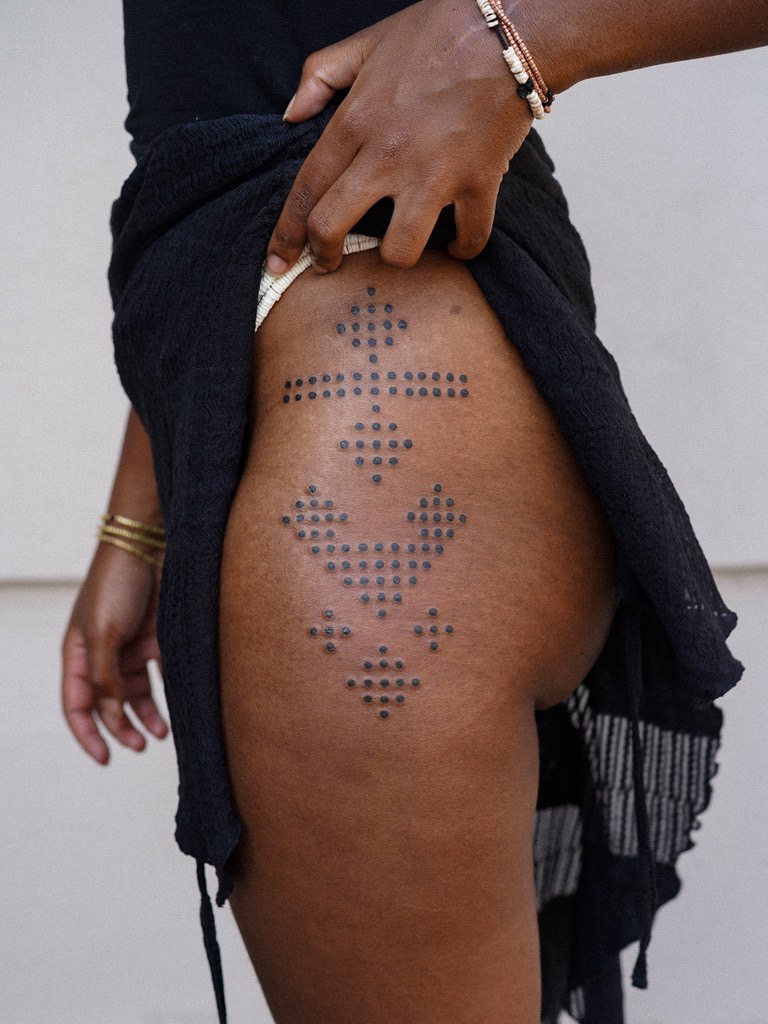


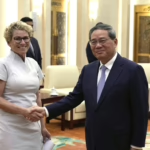
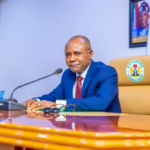













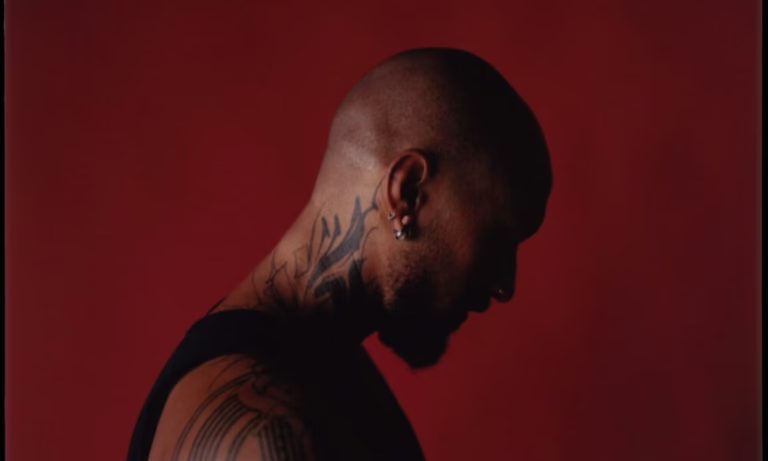
0 Comments